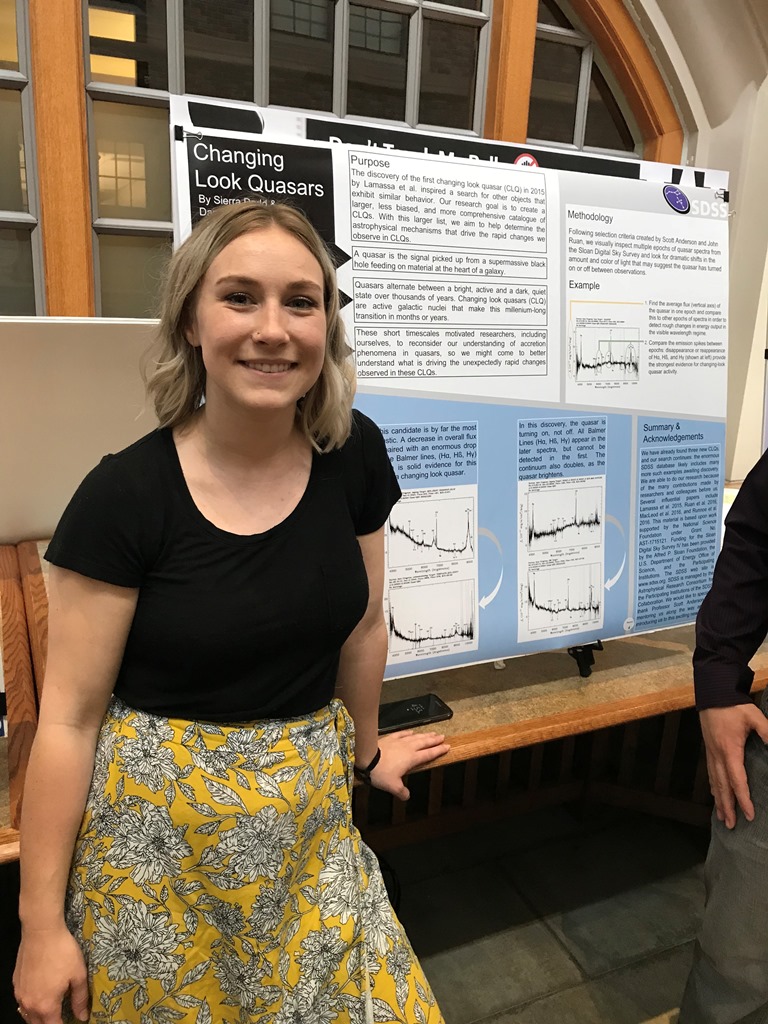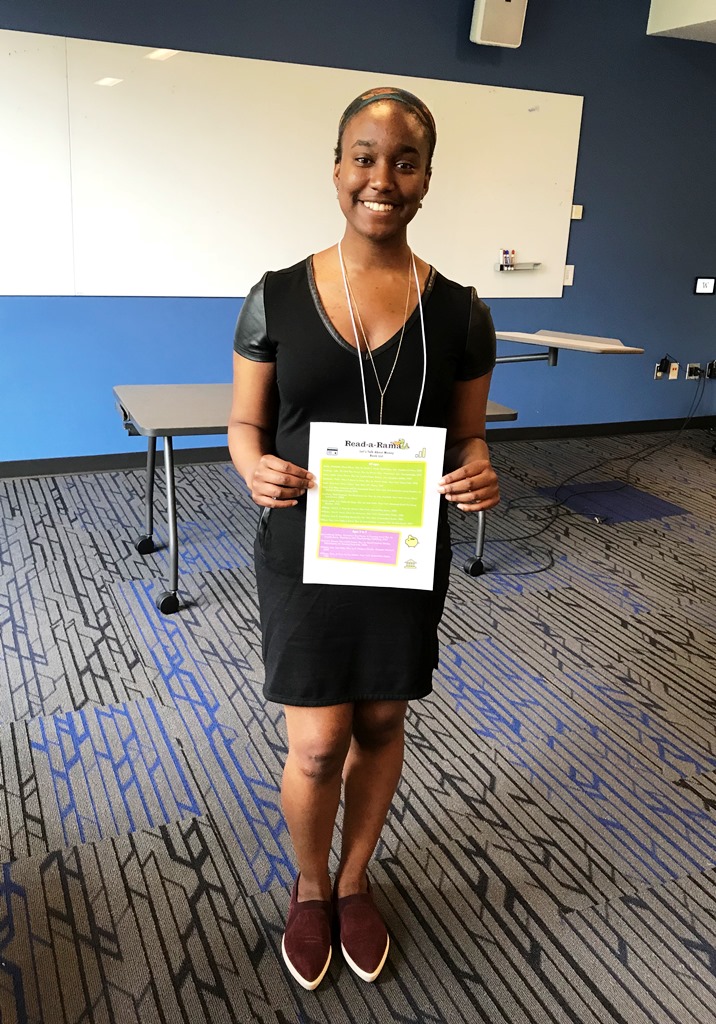Foster students explore eclectic inquiries at Undergraduate Research Symposium

Sierra Dodd
The undergraduate experience at the Foster School of Business is all about the classroom, the team projects, the case competitions, the internships.
But several Foster undergrads have also worked this year on independent research projects. Among the hundreds of studies on display at last month’s UW Undergraduate Research Symposium were the scholarly investigations of several Foster students who explored a highly diversified array of topics.
How diversified? Take a gander.
- Sierra Alison Dodd, a senior in finance who joined the astronomy department to hone her coding skills, collaborated on the study entitled “A Search for Changing-Look Quasars in the Sloan Digital Sky Survey.”
- Lewis Wenbo Yin Luo, a senior studying finance and a Mary Gates Scholar in neurobiology, presented on “Isolating Murine Microglia Progenitors and Identifying Senescence Market Expression in vitro.”
- Allison Caitlin Masangkay, a senior splitting her attentions between information systems and anthropology, studied “Music as Resistance: How Filipinx Americans Navigate Their Diasporic Identity, Heal Historical Trauma, and Find a Way Home.”
- Johnston Mcdonald Means, a sophomore at Foster, presented “The Golden Age of Egyptology: A Personal Perspective,” an analysis of the writings of two intrepid women from the Victorian Age who described the challenges of daily life and team management on famous archaeological digs, as well as the personalities of some of the legendary scientists of the era.
- Catherine Baoanh Pham, a junior at Foster, was part of a large team of biology researchers investigating “RNA Interference Screen for Genes Involved in JNK Dependant Basal Cell Extrusion of Drosophila melanogaster.”
- Kathryn Kavanagh, a senior studying marketing as well as community, environment & planning, presented on her study “You Are What You Eat: Cultivating Conscious Consumption through Informed Consumer Choice.”
- Khatsini Simani, a senior studying finance, presented on “Let’s Talk About Money: Do Immersive Literacy Activities Influence Conversations between Children and Adults?”
Simani, a McNair Scholar at the UW, merged her burgeoning interest in finance at Foster with her childhood ignorance of the topic—a common condition.
“Money is something I was acutely aware of growing up,” says the native Seattleite. “Especially because of the labels—rich, middle class, low-income—that get put on you early and often. I always wanted to be more financially literate, but I didn’t have an explicit definition of what that meant, and I wanted to explore and challenge the notion.”

Khatsini Simani
Simani collaborated with a professor and graduate students from the UW Information School to create a special edition of a program of community events called Read-a-Rama, which encourages families to read together. At a special session entitled “Let’s Talk About Money,” Simani set out to learn whether an immersive literacy experience can spark more family conversations about money.
She began by surveying participating parents to establish how often—if ever—they discuss money with their children.
Then they read together from a selection of children’s books whose plots revolved around money and personal or family finances. The titles curated by Simani included The Hard-Times Jar, A Chair for My Mother, Little Melba and her Big Trombone, Lucky Beans, Caterina and the Lemonade Stand, and The Berenstain Bears’ Trouble with Money.
The kids also made their own piggy banks and fashioned necklaces from international coins. And they took the famous “Marshmallow Test” which poses a tempting choice between eating one treat now or accruing more treats later if you can delay gratification. “Eating into your savings,” is how Simani put it. “It was really tempting. I even wanted a marshmallow.”
At the end of the day, this concentrated session of reading and finance fun did make a difference. Before Read-a-Rama, half of the participating parents reported speaking to their kids about money once a month. After the event, 75 percent said they planned to hold family financial conversations weekly.
A small sample, to be sure. But it was a clear indication that reading literature about money as a family can improve a child’s financial literacy.
As for Simani, who has another year at Foster before her graduation, the research experience has ignited consideration of an academic career. Potential doctoral topics include access to financial services, community banking or behavioral economics.
She’s certainly got a good head start.
